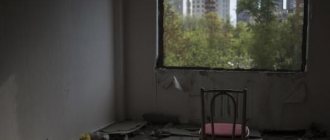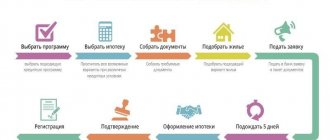Free legal consultation by phone:
8
The eviction of a person who has lost the opportunity to live in a residential area can be carried out voluntarily or using force. The situation is not always resolved painlessly; often the former tenant does not want to leave the inhabited territory and resists expulsion. Then you should resort to legal recourse to court. The court ruling provides legal grounds for inviting law enforcement officials for forced deportation.
Grounds for eviction of persons by court decision
Eviction means the expulsion of people from an apartment with their property: things, animals, furniture, electrical appliances. Laws allow for compulsory eviction by court decision in several cases:
- expiration of the lease term (commercial or social);
- the desire of the apartment owner himself (for example, when buying housing with registered strangers);
- absence of a person from the apartment for a long time;
- seizure of land under the house in favor of the state;
- recognition of the house as unsafe or subject to demolition;
- debt for paying utilities for more than six months (for municipal housing);
- use of residential premises as a store or warehouse;
- violation of the rights of neighbors (raising dirt, creating a brothel, immoral lifestyle, noise after 23.00);
- intentional damage to housing (violation of the structure or property of other owners);
- dismissal (relevant for service apartments);
- resettlement of a spouse after divorce;
- eviction of one of the parents in case of deprivation of parental rights;
- transfer of a residential property by the municipality to non-residential status.
Who can and cannot be evicted from official residential premises
There are several categories of persons whose eviction without the simultaneous provision of other housing is prohibited by law.
Be sure to read it! Consultation with a lawyer regarding an accident online for free
These include:
- Family members of dead or missing military personnel.
- Family members of deceased or missing employees of the Ministry of Internal Affairs, customs, Ministry of Emergency Situations and other government departments.
- People who have retired due to old age.
- Family members of employees of enterprises that own official housing who died at work.
- People who received group 1 or 2 disability as a result of an industrial injury or due to a chronic disease, the development of which is associated with professional activity.
- Military personnel injured while on duty.
- Orphans and other minors left without parental care, as well as adults who lived in an orphanage before turning 18 years of age.
But these categories can legally continue to occupy office space if there are valid grounds for eviction only if the following conditions are met:
- people and their close relatives do not own housing;
- neither they nor their family members rent social housing.
If an employee began using the apartment before March 2005, he does not have the right to be evicted to the street, provided that:
- he is a military veteran;
- he is a member of a military family;
- he worked at an enterprise that provided housing for 10 years or more;
- he was fired from one position and given another position in the same enterprise;
- he was laid off due to liquidation or staff reduction;
- He is raising a minor child alone.
In all these cases, eviction must be accompanied by the provision of other premises, which the owner must find and provide to them in advance. Moreover, the new housing must be located in the same locality as the previous one.
The owner can forcibly evict all other former employees from the living space they occupy in accordance with the procedure established by law.
Eviction from service housing of a military man
As a general rule, termination of a military serviceman’s duties automatically entails the loss of the right to official housing with subsequent eviction. Eviction from official housing is strictly regulated by the law, and the norms of the Housing Code of the Russian Federation will have the highest legal force in this matter.
Eviction is possible in the following cases:
- Leaving a military position. Also, eviction from service housing of a serviceman is possible due to the loss of his military rank or removal from duty due to violation of military regulations or the commission of a crime or administrative offense discrediting the honor and dignity of a military man.
- Change of title owner of the premises. If the premises in which a person lives in connection with military service passes to another owner through purchase and sale, bidding and other reasons, the rental agreement for such premises is automatically terminated in accordance with Art. 102 Housing Code of the Russian Federation. Exception: the owner of the premises is the direct employer and an employment contract or contract with the provision of housing is concluded on his behalf.
- Recognition of premises as dilapidated, unsafe or subject to demolition.
- Violation of the terms of the rental agreement and the rules of living in a residential premises.
Eviction from official residential premises may result from using the apartment for purposes other than residential purposes (for example, as a workshop, office or retail outlet), non-payment of utility bills, damage to property in the apartment, violation of public order rules (for example, peace of neighbors), transfer of the apartment to third parties for rent or rent, as well as in case of leaving for another place of residence.
An important point: in all of the above cases, the contract for the use of official residential premises with a military personnel can only be canceled in court, with the exception of the desire of the resident to terminate the rental agreement.
It is prohibited to evict from military housing:
- The family of a soldier who went missing or died in the performance of military duty.
- Orphans.
- Disabled persons who received this status due to military service.
It is worth noting that the eviction of the above categories of citizens is prohibited only when such citizens or members of their family do not have other housing for permanent residence.
Eviction of Ministry of Internal Affairs pensioners from official housing
Despite the existence of strict rules regarding residence in departmental premises, the law protects certain categories of people from eviction even in situations where there would seem to be all the necessary grounds for eviction. This category, among other things, includes military pensioners and pensioners of the Ministry of Internal Affairs.
Article 103 of the Housing Code of the Russian Federation directly indicates the inadmissibility of eviction of a pensioner from a service apartment if, after retirement, the former employee of the Ministry of Internal Affairs or his family members have not purchased housing for permanent residence.
The eviction of Ministry of Internal Affairs pensioners from official housing or military pensioners is not affected by the fact of reaching retirement age, since retirement can be carried out on the basis of length of service or length of service.
An exception to this rule is the eviction of a pensioner from departmental housing with the provision of equivalent living quarters.
Eviction from service housing with a minor child
A separate question is what to do if a family is facing eviction from service housing with a minor child. Unfortunately, in accordance with the law, a child cannot serve as a basis for preventing eviction, however, in this case, the court, based on the opinion of the guardianship authorities, can provide a certain delay, during which the family could solve financial problems and find a new place to live with the minor .
In addition, when resolving the issue of eviction of a minor, the existence of grounds is checked to allow the family with a minor child to retain the right to use housing - for example, an orphan whose parents died or disappeared in the line of duty cannot be evicted from the residential premises of a specialized fund.
Eviction from official housing: judicial practice
Most cases of termination of residence in residential premises of a specialized fund are considered and resolved exclusively in court. As judicial practice shows, not all residents of service apartments agree with such a decision and, as a result, go to challenge such a decision in court.
It is worth noting that the courts consider each dispute purely individually and take into account all existing circumstances. It is necessary to go to court to protect your rights and legitimate interests or to challenge the actions of the homeowner in the following cases:
- The owner of the apartment or house does not comply with or violates the terms of the rental agreement.
- There are grounds prohibiting eviction from specialized housing.
- The owner missed the statute of limitations (3 years).
This period is calculated from the moment when the owner has grounds to go to court. When protecting your interests in court, it is necessary to keep in mind that procedural legislation obliges each party participating in the process to prove their point of view, and evidence can be in the form of papers and documents, and in the form of testimony.
Several features of the eviction procedure by court decision
If there is a court decision to evict the defendant from the apartment, then the entire process of execution of this decision is controlled by bailiff services. They receive a writ of execution from the court and, based on it, issue a resolution to initiate enforcement proceedings. Without such documents, they have no legal right to evict people.
The actions of bailiffs are regulated by Federal Law No. 229 “On Enforcement Proceedings,” which sets out a clear procedure for the procedure for eviction from an apartment by court decision. Violation of the established procedure can and should be appealed in court as soon as possible.
According to Articles 85-89 of the Housing Code of the Russian Federation, when residents are evicted for reasons beyond their control (demolition of an old house, emergency housing, seizure of land under a building in favor of the state), government officials are obliged to provide people with new, equivalent housing that meets housing standards.
Rent arrears in a municipal apartment leads to eviction by court decision and provision of less living space. At the same time, his current debt remains.
If the owner of an apartment is evicted for debt, the living space is sold at auction. Part of the proceeds pays off debt and covers organizational expenses. The remainder is transferred to the owner to purchase a new home.
What to do if there is an illegal eviction from official housing?
Despite the fact that all the main aspects are regulated by law, in practice you still have to deal with such an unpleasant phenomenon as illegal eviction. In this case, residents must first collect evidence of legal residence. Lawyers recommend emphasizing the absence of grounds for eviction that may be stated by the owners. If possible, focus on the expiration of the statute of limitations and be sure to notify the court.
3 years of living in an apartment of an employer or municipality after the end of work is a reason to leave the housing to the persons living in it.
You can also ask for an extension of your stay due to financial difficulties. And sometimes it becomes possible to submit documents stating that the housing does not have or has lost the status of official housing, and therefore there can be no talk of eviction. Circumstances vary. And they should be used to your advantage.
In such cases, when it comes to eviction or disputed housing, it is highly recommended to use the services of lawyers and hire lawyers. Specialists can analyze the nuances of the issue in advance and work out a defense strategy, taking advantage of the opportunities provided by law. However, otherwise, without the help of specialists, a person or family will have to go against the legal staff of the organization that provided housing. And such a situation may very well turn out to be losing.
Thus, there is a certain list of situations when it may come to eviction from a service apartment. However, in many situations, a person can protect themselves from the risk of illegal eviction. Or get alternative housing with a military mortgage.
What measures to take?
What to do if you are evicted from your apartment? The employer is recommended to read the contract and each clause in it to avoid misunderstandings in the future.
If a rental agreement was concluded between the parties, then it is logical that someday the resident will have to leave the living space.
Without a corresponding court decision, eviction by force is impossible either on the part of the owner or on the part of the administration.
If the eviction of a citizen is unlawful, then you need to devote as much time as possible to preparing documents for the court and finding a qualified lawyer.
Be sure to read it! Is it possible to fire a woman with a child under 14 years old in 2020?
Such proceedings are always specific and require a competent approach to each individual situation.
The outcome of the case will depend on circumstances such as:
- terms of the rental agreement;
- employer status;
- check-in time.
For judicial review, documents are prepared , which include an identity card, a rental agreement, as well as an employment contract, as the basis for signing documents on the provision of housing.
As confirmation of citizens' residence in a service apartment, they provide certificates of payment for utilities.
In order to clarify the full package of documents required to go to court , you need to seek the help of an experienced lawyer.
Service housing does not guarantee a permanent roof over your head, so you need to be prepared for the possibility of sudden eviction. If the eviction is carried out illegally, then you can fight for your rights in court.
whether they can be evicted from official housing from the video:
Can they evict if there is no other apartment?
The law does not prohibit the discharge of a person who has no other place of residence. The owner in this case does not bear any responsibility. He has every right to evict a former subordinate from the official housing.
At the same time, in paragraph 2 of Art. 103 of the Housing Code of the Russian Federation lists several categories of citizens who cannot be evicted from government premises without providing something similar in return . These include:
- Families of military personnel (employees) who died or disappeared while performing their duty to the state;
- Elderly pensioners;
- Close relatives of the deceased employee to whom the service apartment (house, premises) was transferred;
- Persons with disabilities of groups 1 and 2 acquired while performing labor functions in a specific government institution;
- Children whose parents have died or do not fulfill their parental duties.
This right can only be exercised if there is no other place of residence.
Discharge with a minor child
It was noted above that a service apartment is issued to an employee for the period of work in a specific government agency. At the same time, he has the right to live in it with his close relatives, including a minor child.
At the end of the employment contract, the citizen must leave government housing along with his young children. The legislation does not contain any prohibitions in this regard (with the exception of orphans and children left without parental care).
You can also find out whether a minor child can be discharged from an apartment to nowhere by reading here.
The following documents will be required to discharge a child::
- Statement.
- Children's passport or birth certificate.
- Identity card of father and mother.
- Papers for a new living space (purchase and sale agreement, social tenancy, etc.).
It is worth noting that a minor must be immediately registered in another place, since they cannot remove him from the registration register “to nowhere.” There are often cases when a tenant with young children petitions the court to postpone eviction from a service apartment until new housing is found.
Where should they overpower
The issue of evicting a person from a service apartment on legal grounds does not oblige the owner to provide alternative premises for further residence, including a dormitory, and also if the tenants have another area located in the locality. But a number of amendments have been introduced to the legislation regarding the entry into force of the updated provisions of the Russian Housing Code in 2005.
If citizens were registered for improvement of living conditions or were applicants before this period, then they cannot be kicked out of the apartment without being provided with other space. This provision is spelled out in Article No. 13 of Federal Law No. 189 of December 29, 2004.
In other situations, persons are required to leave the property. However, when a change of ownership occurs, then in accordance with Part 1 of Article 103 of the Housing Code of Russia, they are obliged to receive a different apartment.
What to do if you are illegally evicted
When faced with an unjustified eviction, you need to prepare evidence of legal residence in a service apartment. The main emphasis is on the following circumstances:
- The tenant denies the grounds for eviction from the apartment.
- An indication that the statute of limitations has passed in an eviction case. Let us remind you that it is 3 years from the date of termination of the employment relationship.
- Petition to the court to extend the period of residence in the office premises due to difficult financial circumstances.
- Submitting an application to recognize housing as having lost its official status (less common).
The process of eviction by bailiffs in stages
According to the procedure, it is required that a district police officer and two witnesses be present with the bailiffs during the forced eviction of tenants from an apartment by court decision. Sometimes the eviction procedure requires the involvement of specialists from the Ministry of Emergency Situations, when access to the apartment is impossible due to closed locks.
The person being evicted may not even be present at home. This will not prevent you from clearing the room of his things.
Eviction begins after a court decision according to a procedure regulated by law. The writ of execution is sent to the nearest territorial department of the Bailiff Service (Bailiff Service) to the defendant’s place of residence.
Next, the bailiffs study the received decision in detail and begin preparations for forced eviction. Enforcement proceedings begin.
Both parties (respondent and applicant) receive notification of the start of enforcement proceedings. The defendant is asked to voluntarily leave the premises within 5 days from the date of receipt of the notification, and the plaintiff is explained the procedure for contacting the SSP if the defendant does not want to leave the apartment.
If the defendant does not intend to vacate the living space after five days, the bailiffs with the district police officer and two witnesses will go to the address.
An act of eviction of the defendant signed by witnesses is filled out on the spot.
Next, an inventory of the property in the house takes place and the defendant’s personal belongings are sent for temporary storage if he cannot remove them himself. Items are kept by bailiffs for two months. If the owner does not take back his property during this time, the bailiffs have the right to sell it in accordance with Article 107 of the Federal Law of October 2, 2007 N 229-FZ “On Enforcement Proceedings”
After the forced eviction of the owner from the apartment is completed by a court decision, the doors are sealed. If a tenant or a registered person has been evicted, the keys are handed over to the owner of the property. After all the procedures, the bailiffs issue orders to complete the enforcement proceedings and submit them to the court for review.
Rights and obligations of bailiffs during eviction
All actions of bailiffs must be carried out in strict accordance with the regulations. Any small mistake when completing the eviction procedure may become a reason for the defendant to appeal and suspend the process.
Bailiffs do not have the right to use physical force against the defendant if the citizen himself does not show aggression. Forcible expulsion from the premises of a non-aggressive and non-attacking person can only be carried out by police officers, who can be called by the district police officer in the event of conflict and controversial situations.
Bailiffs are required to introduce themselves, show identification and familiarize the evicted person with his rights and obligations.
Rights of defendants in court-ordered evictions
The defendant can count on being granted a deferment on eviction in accordance with Article 434 of the Civil Procedure Code of the Russian Federation. To do this, the person evicted by court decision can submit an application to the bailiffs requesting such a deferment. The legislation provides for a certain range of reasons for deferring forced eviction:
- difficult financial situation (Article 203 of the Civil Procedure Code of the Russian Federation);
- eviction of a tenant with a minor child;
- the defendant has a serious illness that requires constant care and relocation may aggravate the health condition;
- reconciliation of the parties, when the defendant was able to come to an agreement with the plaintiff (for example, compensated for property damage or paid part of the rent debt).
To verify these reasons, you will need salary statements, receipts, birth certificates for minors, medical certificates, prescriptions and receipts for medications.
Forced eviction from an apartment: circumstances
Each apartment has an owner who has full documentary evidence of his rights. But, as practice shows, even in this case, according to the court’s findings, a process such as forced eviction will be started.
In essence, forced eviction is a coercive measure in which an apartment is vacated from an unwanted owner or tenant. This procedure is approved by housing legislation and reflected in the relevant regulatory documents.
It is worth noting that the apartment cannot be taken away from the owner if there are no compelling reasons for this. If a request is received to initiate a process such as forced eviction, the court will initially establish the circumstances that could lead to such an outcome, and based on the information received, will give a final verdict.
3 ways to get a free consultation with a lawyer 01
-consultant in the online chat bottom right
02
Hotline 8 (free consultation in Russia)
03
Request a call back (bottom left button), a lawyer will call you back in 10 minutes
Free consultation with a lawyer on housing issues Prices for lawyer services on housing issues
Of course, the whole procedure is quite complicated and lengthy, but with the proper approach and good reasons, the apartment can be vacated from those living in it at any time.
In Art. 293 of the Civil Code of the Russian Federation specifies the following grounds that the court will consider valid for starting a process such as forced eviction from an apartment:
- The residential premises are not used for their intended purpose, and no one lives in it.
- Numerous complaints from neighbors related to disturbances in the residential building.
- Keeping a significant number of domestic animals in the virtual absence of conditions for proper care for them.
- The living space was changed during the renovation process or underwent redevelopment without permission from authorized structures, which led to fears of harm to the residential building due to the destruction or demolition of load-bearing structures.
- If upon inspection it is revealed that the property was transferred into ownership in violation of current legislative norms.
- Forced eviction from the owner’s apartment can be carried out against citizens living in dilapidated and dilapidated houses, but refusing to leave them.
- The apartment has every chance of losing its owner if there is a significant debt (non-payment for at least 6 months) to pay utility bills, mortgages and other resources.
- Forced eviction also occurs when the status of a participant in a housing cooperative is lost, when the owner of the property changes, or in the event of termination of the rental agreement.
Who is prohibited from being evicted by a court decision?
The Housing Code clearly prohibits the eviction of several categories of citizens by court decision. Here they are:
- veterans of the Great Patriotic War;
- families of USSR military personnel and Soviet partisans;
- citizens who became disabled while serving in law enforcement agencies of the USSR;
- employees of law enforcement agencies of the USSR with over 10 years of experience;
- persons living in living space owned by the USSR Ministry of Defense;
- citizens raising minor children alone;
- persons on the waiting list for the housing improvement program.
Sources:
Federal Law No. 229 “On Enforcement Proceedings”
Article 40 of the Constitution of the Russian Federation
Articles 85-89 of the Housing Code of the Russian Federation
Article 107 of the Federal Law of October 2, 2007 N 229-FZ “On Enforcement Proceedings”
Article 434 of the Civil Procedure Code of the Russian Federation
Article 203 of the Civil Procedure Code of the Russian Federation










